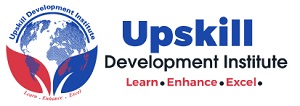Introduction:
This course explores the role of effective communication in managing and resolving conflicts in various contexts, including interpersonal, organizational, and societal levels. Students will learn theoretical frameworks, communication strategies, and practical skills to navigate conflicts constructively and promote positive outcomes.
Good Communication Skills are essential. Being an effective communicator takes real skill. Communication skills have to be developed, honed and added to on an on-going basis. They are the heart of your interpersonal skills and the greater your awareness of how it all works, the more effective your communication will be. To be effective in business, you have to communicate well. To be a good manager, you have to communicate exceptionally well. This course will highlight on key essentials for becoming a more effective communicator.
Course duration
5 days
Course Objectives
By the end of the course, the participant should be able to;
- To understand the nature and dynamics of conflict in interpersonal and organizational settings.
- To examine the role of communication in conflict escalation and de-escalation.
- To develop communication skills for conflict resolution, negotiation, and mediation.
- To cultivate awareness of cultural and diversity issues in conflict management.
Who should attend
- Managers and team leaders aiming to enhance conflict resolution skills.
- Human resources professionals responsible for managing workplace conflicts.
- Business professionals seeking to improve interpersonal communication in diverse settings.
- Mediators, negotiators, and dispute resolution specialists.
- Project managers dealing with team conflicts and stakeholder disagreements.
- Educators and trainers interested in fostering constructive communication among students or employees.
- Anyone involved in collaborative environments where effective communication is crucial.
- Individuals seeking personal development and skills in conflict resolution and communication.
Course outline
Module 1: Introduction to Communication and Conflict
- Definition and types of conflict
- Theories of conflict: constructive vs. destructive conflict
- Role of communication in conflict management
Module 2: Communication Styles and Conflict
- Understanding communication styles
- Impact of communication styles on conflict escalation
- Adaptation strategies for effective communication in conflict
Module 3: Conflict Resolution Models
- Traditional conflict resolution approaches: win-lose vs. win-win
- Integrative negotiation and principled negotiation
- Interest-based conflict resolution and problem-solving techniques
Module 4: Mediation and Third-Party Intervention
- Role of mediators in conflict resolution
- Mediation process: stages and techniques
- Ethical considerations and challenges in mediation
Module 5: Cross-Cultural Communication and Conflict
- Cultural dimensions and their influence on communication
- Cultural barriers in conflict resolution
- Strategies for managing cross-cultural conflicts
Module 6: Communication in Organizational Conflict
- Causes of organizational conflict
- Communication channels and conflict escalation
- Conflict management strategies for organizations
Module 7: Group Conflict and Facilitation
- Dynamics of group conflict
- Facilitation techniques for conflict resolution
- Building consensus and managing group dynamics
Module 8: Conflict in Interpersonal Relationships
- Conflict patterns in intimate relationships
- Communication skills for conflict resolution in relationships
- Managing conflicts in friendships, romantic relationships, and families
Module 9: Conflict in the Workplace
- Sources of workplace conflict
- Communication strategies for resolving workplace conflicts
- Role of leaders and managers in conflict management
Module 10: Conflict Transformation and Resolution
- Transformative conflict resolution approaches
- Restorative justice and reconciliation processes
- Long-term strategies for sustainable conflict resolution
Training Approach
This course will be delivered by our skilled trainers who have vast knowledge and experience as expert professionals in the fields. The course is taught in English and through a mix of theory, practical activities, group discussion, and case studies. Course manuals and additional training materials will be provided to the participants upon completion of the training.
Tailor-Made Course
This course can also be tailor-made to meet organization requirements. For further inquiries, please contact us on Email: training@upskilldevelopment.com Tel: +254 721 331 808
Certification
Participants will be issued with Upskill certificate upon completion of this course.
Airport Pickup and Accommodation
Airport pickup and accommodation are arranged upon request. For booking contact our Training Coordinator through Email: training@upskilltrainingcenter.com, +254 721 331 808
Terms of Payment:
Unless otherwise agreed between the two parties payment of the course fee should be done at least 3 working days before commencement of the training so as to enable us to prepare better

